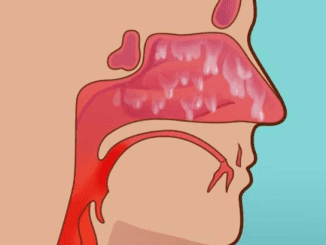Understanding the Role of the Kidneys
The kidneys are two small, bean-shaped organs located on either side of the spine, just below the ribcage. Their primary function is to filter the blood, removing waste products and excess fluids from the body. The kidneys also help control blood pressure, produce red blood cells, and maintain the balance of electrolytes, such as sodium, potassium, and calcium. When the kidneys are healthy, they filter around 120 to 150 quarts of blood daily, producing about 1 to 2 quarts of urine.

What is Kidney Disease?
Kidney disease, also known as renal disease, occurs when the kidneys sustain damage and are no longer able to function optimally. There are various causes of kidney disease, including high blood pressure, diabetes, infections, autoimmune disorders, and genetic factors. Over time, kidney disease can progress and lead to kidney failure, requiring dialysis or a kidney transplant. Early detection is critical to prevent further damage and manage the condition effectively.
10 Signs Your Body is Telling You Your Kidneys Are in Trouble
1. Changes in Urination
One of the earliest signs of kidney disease is changes in urine production. You may notice increased frequency of urination, especially during the night. On the other hand, you may experience decreased urination or foamy urine.
2. Fatigue and Weakness
Kidney disease can lead to anemia, a condition characterized by low red blood cell count. This can result in persistent fatigue, weakness, and difficulty concentrating.
3. Swelling
Excessive fluid buildup in the body, known as edema, commonly occurs with kidney disease. Swelling can affect the legs, hands, face, and even the abdomen.
4. Persistent Back Pain
Kidney disease can cause back pain, usually felt just below the ribcage. The pain may be severe and persistent, often accompanied by tenderness. This will often accompany a urinary tract infection that has gone untreated.
5. Unexplained Weight Loss or Loss of Appetite
If you experience unexplained weight loss or a decrease in appetite, it may be a sign of kidney disease. This occurs due to the build-up of waste products in the body and a loss of appetite.
6. Nausea and Vomiting
Kidney disease can cause a feeling of nausea and may lead to episodes of vomiting. This can be especially prominent in the morning or after meals.
7. Difficulty Sleeping
People with kidney disease often report trouble sleeping. This may be attributed to nighttime muscle cramps, restless leg syndrome, or frequent urination.
8. Metallic Taste in the Mouth
A persistent metallic taste in the mouth can be indicative of kidney disease. This is due to the build-up of waste products in the blood.
9. Muscle Cramps and Twitching
Electrolyte imbalances, such as low potassium and calcium levels, can cause muscle cramps and twitching. These symptoms may be associated with kidney disease.
10. Itchy Skin
Kidney disease can lead to an accumulation of toxins in the blood, causing itchy skin. This is often generalized and not limited to a specific area.
It is important to note that these symptoms may vary depending on the stage and severity of kidney disease. If you experience any of these signs, it is essential to consult with a healthcare professional for further evaluation and appropriate management.
Keeping Your Kidneys Healthy
There are several things you can do to help keep your kidneys healthy and prevent kidney disease before it happens. The number one is, as always, living a healthy lifestyle. That means eating well, exercising regularly, drinking plenty of water, moderating alcohol consumption, and sleeping well. If you smoke, consider quitting. Be mindful of both prescription and over-the-counter drugs and how you are taking them. Always follow your doctor or pharmacist’s directions, or follow the directions on the bottle.
Finally, get your kidneys tested if you are unsure or if you are at a higher risk for developing the disease. Remember, early detection and timely treatment hold the key to preventing kidney disease from progressing and improving overall health outcomes. Don’t wait until it’s too late.
Conclusion
Kidney disease is a serious condition that can have devastating consequences if left untreated. By being aware of the early warning signs and taking proactive steps to maintain kidney health, you can significantly reduce your risk of developing this debilitating condition. Remember to listen to your body, consult with healthcare professionals, and make lifestyle choices that support your kidneys’ well-being. Together, we can work towards a future where kidney disease is a preventable and manageable condition.


